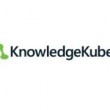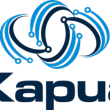

Organisations are facing significant challenges when it comes to maximising the Internet of Things (IoT), according to a survey* by the producers of the app development platform KnowledgeKube. (more…)
October 26, 2016
Posted by: Avadhoot Patil

Orange Business Services has announced the worldwide launch of Datavenue, its new Internet of Things (IoT) and data analytics modular offer. (more…)
October 25, 2016
Posted by: Avadhoot Patil

PTC and Hewlett Packard Enterprise (HPE) has announced a planned collaboration to facilitate the availability of the Converged IoT Solutions, based on PTC ThingWorx software and HPE Edgeline Systems. (more…)
Posted by: Avadhoot Patil

ATP, a provider manufacturer of high performance DRAM and flash memory solutions, has announced the industry’s first DDR3L ECC SODIMM technology capable of operating at 1866MHz. (more…)
October 24, 2016
Posted by: Avadhoot Patil

Eurotech, a provider of Machine-to-Machine (M2M) platforms and Internet of Things (IoT) solutions, has announced the availability of the first code contribution for Eclipse Kapua, in collaboration with Red Hat, a provider of open source solutions. (more…)
Posted by: Avadhoot Patil

ForeScout Technologies Inc, a provider in agentless cybersecurity, has announced the findings of its new European Perceptions, Preparedness and Strategies for IoT Security survey. (more…)
October 21, 2016
Posted by: Avadhoot Patil

EnOcean, a developer of energy harvesting wireless technology, is to offer its energy harvesting wireless modules and white label products under the new brand name “Dolphin – Self-powered IoT by EnOcean”. (more…)
Posted by: Avadhoot Patil

The Internet of Things has taken the world by storm. With a long list of potential benefits for businesses and consumers alike, it is no surprise that there is a growing list of companies aiming to tap into the potential. (more…)
Posted by: Avadhoot Patil

Vodafone announced that the world’s first live commercial NB-IoT networks will be in Germany, Ireland, the Netherlands and Spain in the first three months of 2017. (more…)
October 20, 2016
Posted by: Avadhoot Patil

Dell reported that systems integrators (SIs) have now been added to the Dell Internet of Things (IoT) Solutions Partner Programme, which currently has an ecosystem of over 50 Independent Software Vendors (ISVs). (more…)
Posted by: Avadhoot Patil